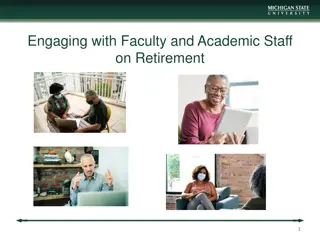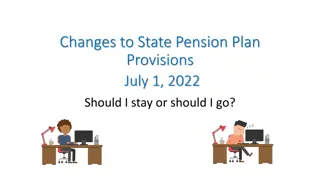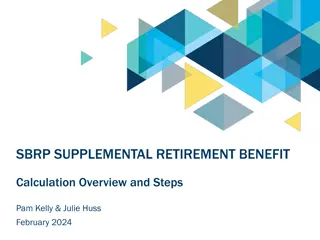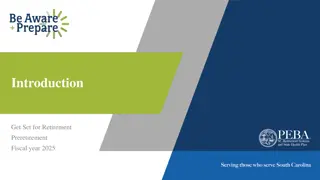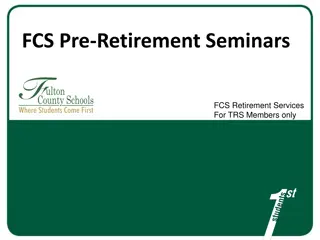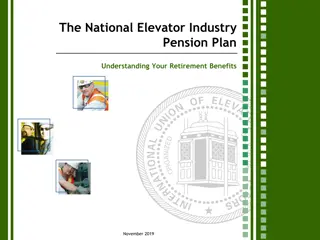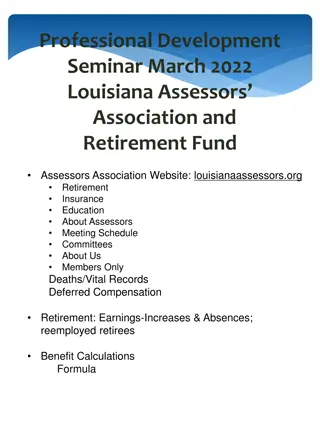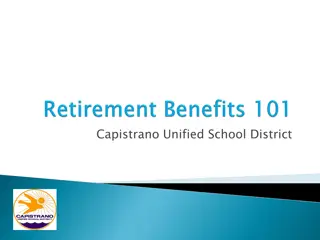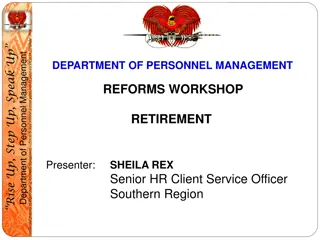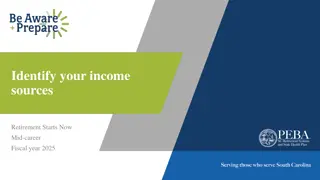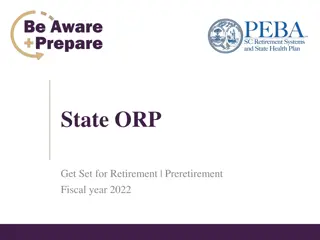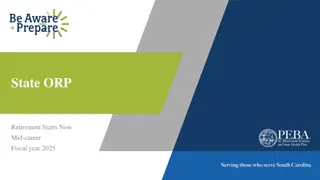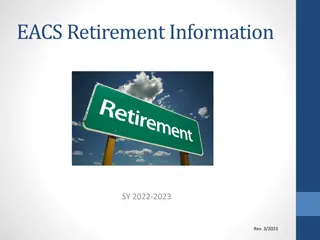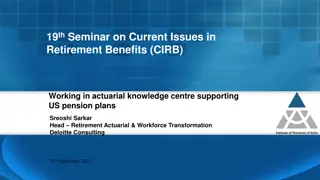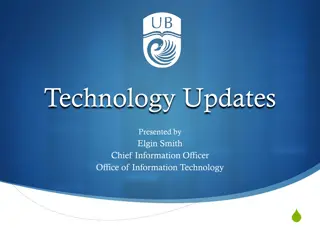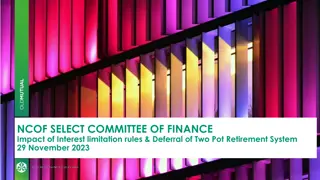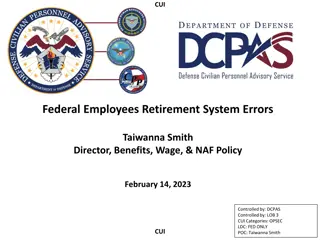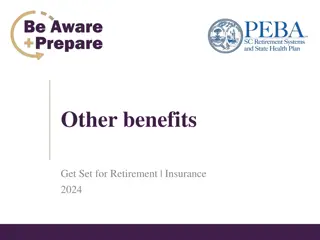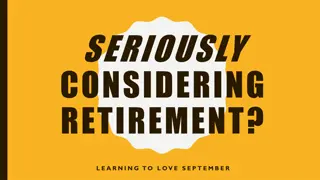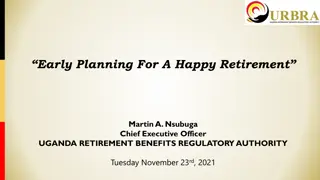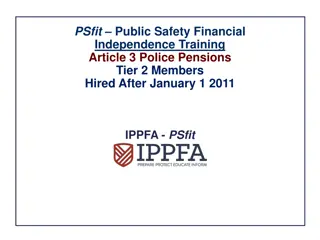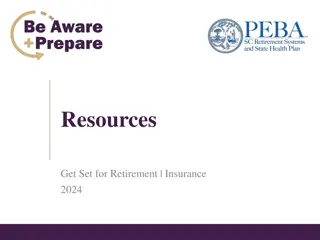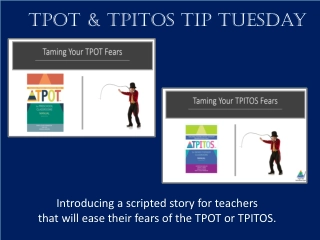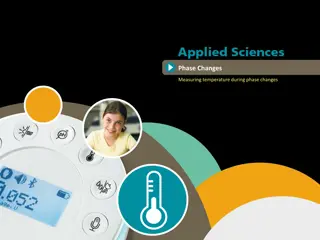Navigating Retirement Transitions: Discovering What's Next
Explore the various types of retirees and the importance of balance in retirement. Learn tips for creating a fulfilling retirement routine, establishing a new routine, and habits of happy retirees. Find ways to stay connected, maintain wellness, and make meaningful choices in retirement.
Download Presentation

Please find below an Image/Link to download the presentation.
The content on the website is provided AS IS for your information and personal use only. It may not be sold, licensed, or shared on other websites without obtaining consent from the author. Download presentation by click this link. If you encounter any issues during the download, it is possible that the publisher has removed the file from their server.
E N D
Presentation Transcript
Discovering Whats Next: Navigating the Transitions of Retirement
Agenda Six Types of Retirees Importance of Balance in Life Dimensions of Wellness Tips for Creating a Retirement Routine
Six Types of Retirees Continuers stay connected with past skills and activities, but modify them to fit retirement, such as working part-time or volunteering in the same field. Adventurers venture into the world of the unknown. They start new activities or learn new skills not related to their past work. Searchers learn by trial and error as they look for a niche; they have yet to find their identity in retirement. Almost everyone is a searcher at some point. Easy Gliders enjoy unscheduled time and like to go with the flow. They like to choose activities that appeal in the moment, and don t feel the need to have a plan or an agenda. Involved Spectators are no longer actively involved in their previous work, but continue to connect to the people, ideas and activities that made the work rewarding. Retreaters two types: those who take a break and have some down time, until they can determine next steps. Others may become depressed, retreat from life and give up on finding a new path. Adapted from Retire Smart, Retire Happy: Find Your True Path in Life Nancy K. Schlossberg, EdD, Counseling Psychology, University of Maryland
Balance comes from the Latin meaning two scale pans instrument for weighing as means of judging or deciding balance is about looking at choices and making decisions we do this constantly, but are we doing it consciously?? Balance means making sure we take time to do the things that are most important to us, and that make us feel happy and fulfilled. Priorities will likely change in retirement, and may need to be re-examined.
Establishing a New Routine Give yourself some time to determine what works best for you Set goals and plan ahead for your must-do s Make a schedule or to-do list but remain flexible! Create a positive morning routine it will set the tone for the day Break your day down into smaller chunks Try to balance activities (i.e. physical, mental, social, fun!) Consider alternating different types of activities Build in time for relaxation/rest
Happy Retirees do these things Work at staying healthy Foster strong social connections Find a clear sense of purpose Train their brains to be optimistic Practice gratitude Never stop learning Adapted from: Happy Retirees Have These 7 Habits in Common, Kiplinger Magazine, June 2021
EAP Contact Information Call 860-679-2877 or 800-852-4392 Email: uchc_eap@uchc.edu Website: h.uconn.edu/eap Hours: 8:00am 5:00pm After business hours, if the situation is urgent, call the main number and follow the instructions. You will be connected to the on-call EAP counselor. State of CT Retirement Website: https://www.osc.ct.gov/rbsd/stateretire.htm


